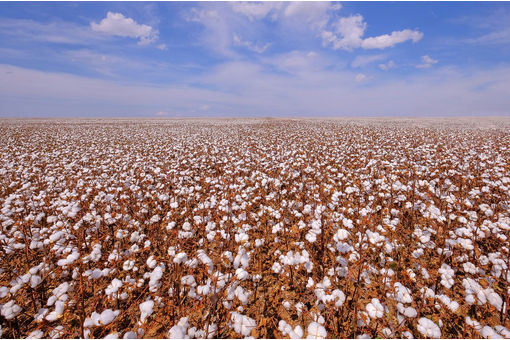Interviews
Surge in garment industry transparency: report
24 Dec '19
3 min read

Pic: Human Rights Watch
Clothing and footwear brands and retailers have dramatically raised their disclosure of information about supply chains in the past three years, a coalition of unions, human rights groups and labour rights advocates said recently. Disclosure has become a widely accepted step toward better identifying and addressing labour abuses in garment supply chains.
In 2016, the coalition created the Transparency Pledge, a minimum standard of supply chain transparency that enables advocates, workers, and consumers to find out where a brand’s products are made.
The coalition’s 15-page report, titled ‘Fashion’s Next Trend: Accelerating Supply Chain Transparency in the Apparel and Footwear Industry’, describes how dozens of brands and retailers are publicly disclosing information about their supplier factories.
“Transparency is not a panacea for labor rights abuses but is critical for a business that describes itself as ethical and sustainable,” said Aruna Kashyap, senior women’s rights counsel at Human Rights Watch (HRW). “All brands should adopt supply chain transparency, but ultimately laws are needed that require transparency and enforce critical human rights practices,” she said.
Thirty-nine companies have thus far aligned or committed to aligning with the Transparency Pledge standard, with 22 of them being among the 72 companies that the coalition began engaging with in 2016, according to an HRW press release.
Since mid-2018, the coalition has also engaged with seven Responsible Business Initiatives (RBIs), groups of companies and others seeking to drive ethical business practices by their corporate members to promote supply chain transparency through their policies and actions.
Transparency among corporate members of RBIs varies significantly, the coalition said. By not mandating public disclosure of supplier factories by all their members, these initiatives reinforce the status quo in the industry. The coalition urged RBIs to play a leadership role by requiring companies, as a condition of membership, to publicly disclose information about their supply chains by January 2020, at minimum, in alignment with the Transparency Pledge standard.
The Dutch Agreement on Sustainable Garments and Textiles (AGT) has not made supply chain transparency of individual members a condition of membership but requires its members to disclose information about their supplier factories to the AGT secretariat that is made public in aggregate form through the Open Apparel Registry.
The Open Apparel Registry is an easily accessible and searchable database that provides information about factories’ affiliation to brands and RBIs.
The United Kingdom Ethical Trading Initiative and the Fair Wear Foundation have taken incremental steps to improve supply chain transparency of their members. The Sustainable Apparel Coalition, amfori, and the German Partnership for Sustainable Textiles have not taken measures to link supply chain transparency to its membership requirements.
In 2016, the coalition created the Transparency Pledge, a minimum standard of supply chain transparency that enables advocates, workers, and consumers to find out where a brand’s products are made.
The coalition’s 15-page report, titled ‘Fashion’s Next Trend: Accelerating Supply Chain Transparency in the Apparel and Footwear Industry’, describes how dozens of brands and retailers are publicly disclosing information about their supplier factories.
“Transparency is not a panacea for labor rights abuses but is critical for a business that describes itself as ethical and sustainable,” said Aruna Kashyap, senior women’s rights counsel at Human Rights Watch (HRW). “All brands should adopt supply chain transparency, but ultimately laws are needed that require transparency and enforce critical human rights practices,” she said.
Thirty-nine companies have thus far aligned or committed to aligning with the Transparency Pledge standard, with 22 of them being among the 72 companies that the coalition began engaging with in 2016, according to an HRW press release.
Since mid-2018, the coalition has also engaged with seven Responsible Business Initiatives (RBIs), groups of companies and others seeking to drive ethical business practices by their corporate members to promote supply chain transparency through their policies and actions.
Transparency among corporate members of RBIs varies significantly, the coalition said. By not mandating public disclosure of supplier factories by all their members, these initiatives reinforce the status quo in the industry. The coalition urged RBIs to play a leadership role by requiring companies, as a condition of membership, to publicly disclose information about their supply chains by January 2020, at minimum, in alignment with the Transparency Pledge standard.
The Dutch Agreement on Sustainable Garments and Textiles (AGT) has not made supply chain transparency of individual members a condition of membership but requires its members to disclose information about their supplier factories to the AGT secretariat that is made public in aggregate form through the Open Apparel Registry.
The Open Apparel Registry is an easily accessible and searchable database that provides information about factories’ affiliation to brands and RBIs.
The United Kingdom Ethical Trading Initiative and the Fair Wear Foundation have taken incremental steps to improve supply chain transparency of their members. The Sustainable Apparel Coalition, amfori, and the German Partnership for Sustainable Textiles have not taken measures to link supply chain transparency to its membership requirements.
Fibre2Fashion News Desk (DS)
Popular News
































-Ltd..jpg?tr=w-120,h-60,c-at_max,cm-pad_resize,bg-ffffff)





.jpg?tr=w-120,h-60,c-at_max,cm-pad_resize,bg-ffffff)
.jpg?tr=w-120,h-60,c-at_max,cm-pad_resize,bg-ffffff)






